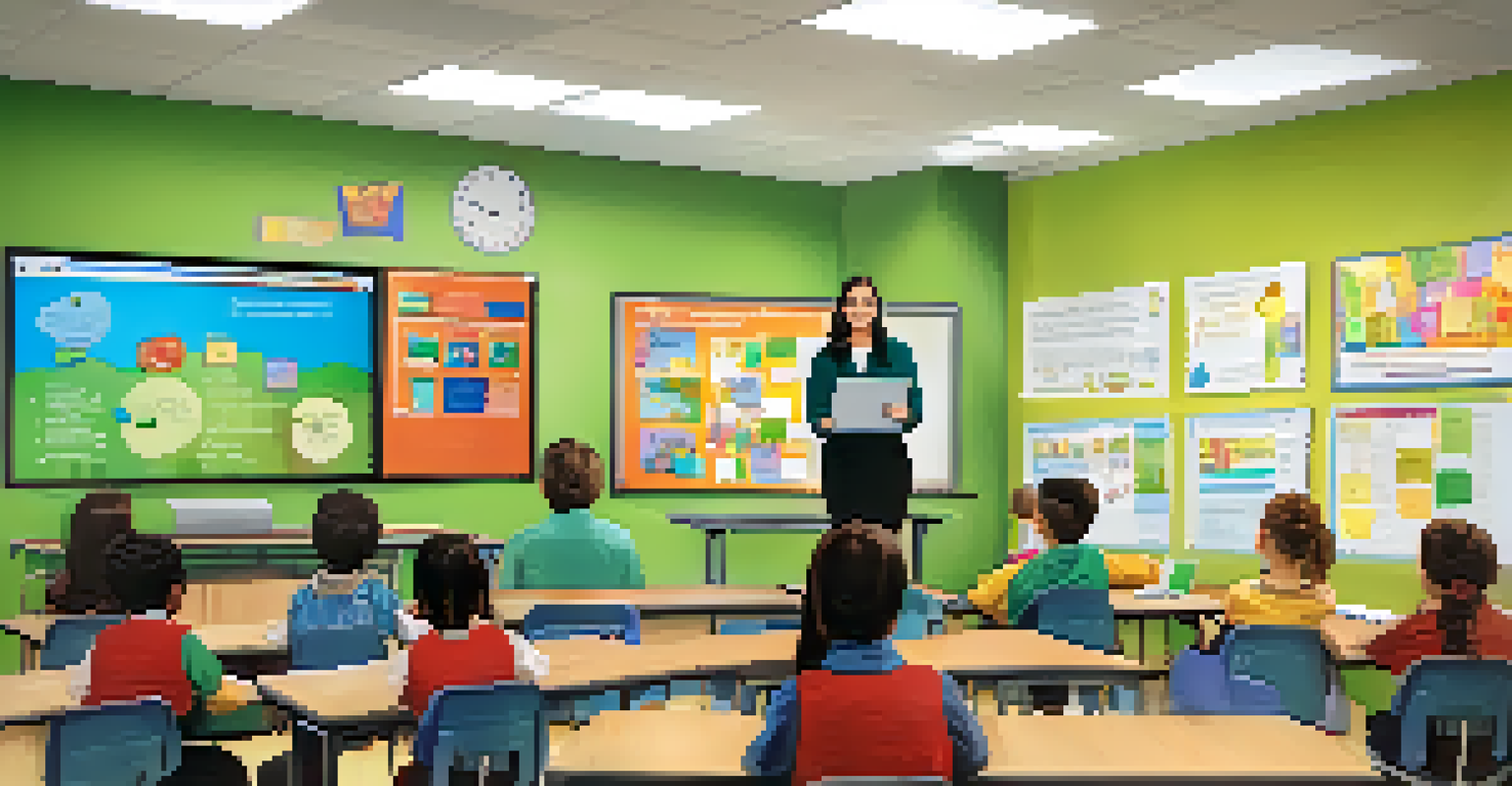Understanding the Basics of Digital Assessment Literacy

What is Digital Assessment Literacy and Why It Matters
Digital assessment literacy refers to the skills and knowledge needed to effectively navigate and utilize digital tools for assessment purposes. In our increasingly tech-driven world, it’s essential for educators and learners alike to understand how to use these tools. This literacy helps ensure that assessments are not only effective but also fair and accessible to all students.
The greatest danger in times of turbulence is not the turbulence; it is to act with yesterday's logic.
Think of it as learning to read the map before embarking on a journey. Just as a map guides you through unfamiliar terrain, digital assessment literacy guides educators in choosing the right tools and methods. It becomes crucial in creating meaningful assessments that accurately reflect student learning.
Ultimately, fostering digital assessment literacy empowers educators to enhance their teaching practices and engage students more deeply. By understanding these tools, teachers can provide better feedback and create a more supportive learning environment.
Key Components of Digital Assessment Literacy
There are several key components that make up digital assessment literacy. These include understanding various digital assessment tools, knowing how to analyze data, and being able to interpret results effectively. Each of these components plays a vital role in ensuring that assessments meet educational objectives.

For example, familiarity with online quizzes and surveys can greatly aid in gauging student comprehension. Similarly, being able to analyze the data collected from these assessments allows educators to adjust their teaching strategies accordingly. It's about creating a feedback loop where instruction and assessment inform one another.
Understanding Digital Tools is Key
Digital assessment literacy equips educators and learners with the skills to effectively use technology for fair and meaningful assessments.
Moreover, it’s essential for educators to be aware of the ethical implications of digital assessments. This includes ensuring data privacy and creating assessments that are equitable for all learners, which is a critical part of digital assessment literacy.
The Role of Technology in Modern Assessment Practices
Technology has revolutionized the way we approach assessments in education. With tools like online quizzes, interactive assignments, and automated grading systems, educators can save time while providing immediate feedback to students. This shift not only enhances efficiency but also allows for more personalized learning experiences.
Technology is best when it brings people together.
Consider the use of learning management systems (LMS) that host assessments and track student progress. These platforms provide valuable insights into student performance, enabling educators to tailor their instruction. It’s akin to having a GPS system that guides you based on real-time data.
However, with great power comes great responsibility. Educators must navigate potential challenges such as digital equity and ensuring that all students have access to the technology needed to succeed in these assessments.
Benefits of Digital Assessment Literacy for Educators
For educators, developing digital assessment literacy can lead to numerous benefits. It equips them with the ability to create diverse assessment methods that cater to various learning styles. This not only enriches the learning experience but also fosters a more inclusive classroom environment.
Moreover, when educators are well-versed in digital assessment tools, they can provide timely and constructive feedback to students. This immediacy can motivate students to engage more meaningfully with their learning, much like getting a encouraging word from a coach right after a play.
Technology Enhances Assessment Efficiency
Modern assessment practices leverage technology to provide immediate feedback and personalized learning experiences for students.
Finally, enhancing digital assessment literacy can lead to ongoing professional development. Educators can share insights and strategies with colleagues, fostering a culture of continuous learning and improvement within their institutions.
Challenges in Achieving Digital Assessment Literacy
Despite its importance, many educators face challenges in achieving digital assessment literacy. One major hurdle is the rapid pace of technological change, which can leave some educators feeling overwhelmed or left behind. It’s similar to trying to catch up with a fast-moving train; without the right support, it's easy to feel lost.
Additionally, there may be a lack of training or resources available for educators to enhance their skills. Not every institution provides the necessary professional development opportunities, which can hinder growth in this area. This gap emphasizes the need for targeted training initiatives.
Moreover, some educators may struggle with the mindset shift required to embrace digital assessment tools fully. Transitioning from traditional methods to digital ones can be intimidating, but overcoming these fears is crucial for fostering a successful learning environment.
Strategies for Building Digital Assessment Literacy
Building digital assessment literacy requires a strategic approach. First and foremost, educators should seek out professional development opportunities focused on technology integration in assessment. Workshops, online courses, and peer collaborations can provide valuable insights and hands-on experience.
Additionally, educators can benefit from creating a community of practice where they can share experiences, challenges, and successes. This collaborative effort fosters a supportive environment that encourages experimentation with new tools and techniques. Think of it as a book club, but for digital learning!
Ongoing Development is Essential
Educators must engage in continuous professional development to keep up with rapidly changing digital assessment tools and practices.
Lastly, educators should stay informed about the latest trends and tools in digital assessment. Subscribing to educational technology newsletters or joining relevant online forums can keep them updated and inspired to innovate their assessment practices.
The Future of Digital Assessment Literacy in Education
Looking ahead, the importance of digital assessment literacy is only expected to grow. As educational institutions increasingly adopt technology, being digitally literate will become a fundamental requirement for educators. This evolution will shape how we assess student learning and drive educational outcomes.
Moreover, the integration of artificial intelligence and data analytics into assessments will present new opportunities and challenges. Educators will need to adapt to these innovations while ensuring that assessments remain fair, inclusive, and effective. It's an exciting time, much like the dawn of a new era in exploration.

Ultimately, embracing digital assessment literacy will empower educators to enhance their teaching and support student success. By equipping themselves with the right skills, they can navigate the complexities of the digital landscape and create meaningful learning experiences for all.